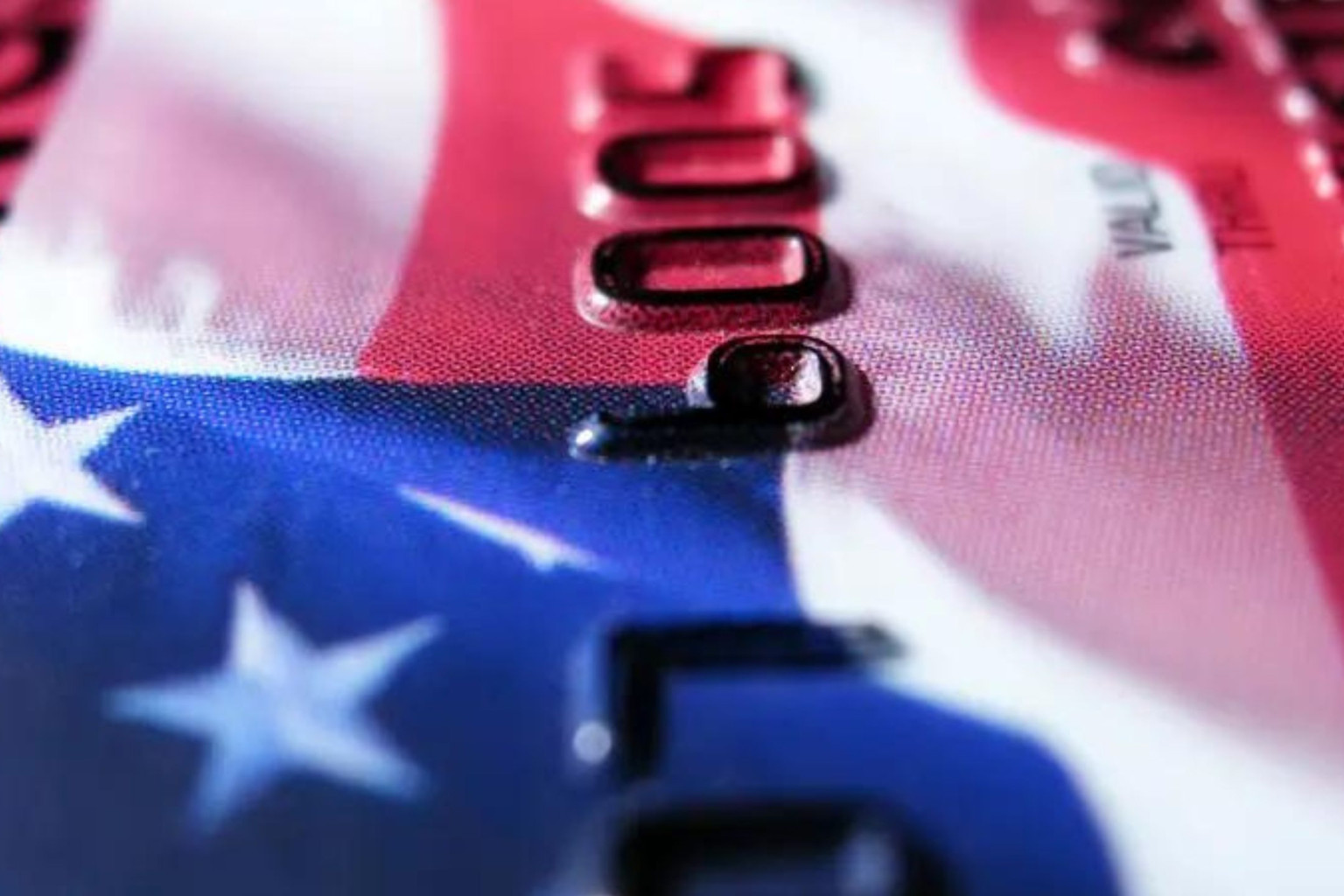Anyone applying for a visa for the USA must pay application fees to the US authorities. The costs for a USA visa vary depending on the visa category applied for. Below you will find some of the most important visa fees that can currently be incurred when applying for the various visas.
All US visa applicants are required to pay a visa fee to the US authorities. But how much does a visa for the USA cost? The answer is: it all depends!
How high the application fees are and when they have to be paid always depends on which visa category is applied for.
Depending on whether you are applying for a nonimmigrant visa or an immigrant visa, you will incur different costs. Before applying for a visa, you should therefore find out exactly which US authority charges which processing fees.

The visa fee is also called consular fee or application fee and is known in technical jargon as MRV (Machine Readable Visa) fee. The consular processing fee is mandatory for every visa application. Only after payment of the visa fee is it possible to schedule a consular interview appointment at the US consulate.
Please note that visa fees are non-refundable and non-transferable. If the visa application is canceled or the US visa is denied, the applicant will not be refunded the fee. In addition, the visa fee cannot be transferred to other persons, such as family members or colleagues.
The amount of the visa fee depends on the visa category applied for. The application fees for nonimmigrant visas are based on the respective visa category in order to take into account the different levels of effort and the associated costs. This means that the visa fees vary depending on the visa category.
Although visa fees are officially quoted in US dollars, payment is made in the respective national currency. Visa fees are therefore subject to regular exchange rate fluctuations. Therefore, there are often fee reductions or increases.
The current euro-dollar exchange rate of the US consulates (= consular exchange rate) is 0.9 euro to 1 US dollar (as of May 2025).
The last fee increase for almost all US visa categories was in June 2023.
Consular application fees for US nonimmigrant visas
185 $ | 166,50 €
205 $ | 184,50 €
265 $ | 238,50 €
315 $ | 283,50 €
(as of May 2025)
Consular application fees for US immigrant visas
345 $
325 $
330 $
(as of May 2025)
The visa fee can be paid at US consulates worldwide through a variety of options. The following payment options are available:
When paying, all instructions should be followed carefully so that the payment is registered quickly. In particular, the subject should always include the reference number otherwise there may be delays in processing. In the worst case, the visa fee must be paid again.
After paying the visa fee you will receive a payment receipt, which is valid for one year. Consequently, the visa fee is valid for one year from the date of payment. During this period, you should make an interview appointment at a US consulate or embassy, as the visa fee would be due again after the twelve months have expired. The appointment must be made within 365 days, but not also within this time.

In addition to the consular application fee described above, there are other visa fees that are incurred in the consular process.
Once your visa has been approved, there are two delivery options for your passport:
Applicants who wish to have their passport delivered by post to a delivery address must pay a premium service fee. For more information on costs and delivery options, please contact the US consulate or US embassy in your home country or visit our website.
The SEVIS fee is charged when applying for an F, J or M visa and varies depending on the category. Applicants must pay the SEVIS fee before attending their consular interview appointment. Payment is made online by credit card.
The proof of payment must be enclosed with the consular application, otherwise it will not be processed. Read more about the so-called I-901 Student and Exchange Visitor Information System (SEVIS) Fee.
The Fraud Prevention and Detection Fee, as the name suggests, is used for fraud prevention and detection. It is payable as part of L-Blanket visa applications. This fee can only be paid
during the interview appointment at the US consulate. Currently, this fee is 500 US dollars.
The Reciprocity Fee is an additional fee based on the principle of government reciprocity. Once a foreign government charges US citizens for certain types of visas, the United States also charges that country's citizens a reciprocity fee for similar visa categories.
For example, if American citizens have to pay an additional fee for a visitor visa in China, this also applies to Chinese citizens applying for a B-1 / B-2 visitor visa.
The principle of reciprocity involves either additional fees or a shorter validity period (or both) for visa applicants from certain countries and for certain visa categories. Thus, based on the nationality of applicants and the type of visa applied for, the U.S. Department of State may
The amount of the reciprocity fee varies depending on the nationality of the applicant and the visa category applied for. You can find out whether you also have to pay a Reciprocity Fee on the website of the U.S. State Department.
This fee must also be paid by credit card or in cash in person at the US consulate.
Many US visas require a prior application process with the U.S. Citizenship and Immigration Services (USCIS). This means that, depending on the category, a petition may have to be submitted to the USCIS in advance. This affects, for example, almost all applications for US work visas (L, H, O etc.).
Unlike many other US federal agencies, the USCIS is almost entirely fee-funded. As of April 1, 2024, the fee structures were comprehensively changed and they are now much more differentiated. While some fees are mandatory for all applicants (e.g. USCIS Standard Fee), other fees remain optional (e.g. Premium Processing Fee).
Since April 1, 2024, the US immigration authorities differentiates between nonimmigrant classifications and thus introduce separate fees for specific nonimmigrant categories. US employers are particularly affected by this in I-129 application procedures (Petition for a Nonimmigrant Worker), i.e. applications for temporary work stays in the USA (e.g. H-1B, L-1, O-1).
In addition, I-129 applications will be differentiated according to the size or profit / non-profit status of the US company. This means that there is a standard I-129 fee for companies and a reduced fee for charitable organizations / non-profit companies and small employers.
US companies that have 25 or fewer full-time employees in the USA are defined as small employers. In this calculation of full-time employees, all full-time employees at all US locations are taken into account, regardless of visa status.
Since April 1, 2024 there has been a discount for online application procedures, i.e. the paperless submission form. Applicants who use the online option will receive a fee reduction of 50 US dollars as standard. The lower fees for using the online services are intended to promote their attractiveness and make processing more efficient.
In addition, online filing is being expanded and made available for other USCIS application procedures.
Below you will find an overview of the adjustments to selected USCIS fees.
| US WORK VISAS | |
| I-129 Petition for A Nonimmigrant Worker |
FEES (from 04/01/2024) |
| I-129 for H-1B | $780 |
| I-129 for H-1B; small employers and nonprofits | $460 |
| I-129 for L | $1,385 |
| I-129 for L; small employers and nonprofits | $695 |
| I-129 for O | $1,055 |
| I-129 for O; small employers and nonprofits | $530 |
Please note: In addition, the fee schedule includes a new Asylum Program Fee, which is due for every I-129 and I-140 petition, including extension applications. The regular fee is $600 (small employers pay $300, nonprofit organizations are exempt).
Incidentally, the H-1B Registration Process Fee of 10 US dollars will only be increased to 215 $ in the coming year 2025 (for H-1B Fiscal Year 2026 applications).
| EXTENSION OF STAY / CHANGE OF STATUS | |
| I-539 Application to Extend / Change Nonimmigrant Status |
FEES (from 04/01/2024) |
| I-539 paper filing (with or without biometrics services) | $470 |
| I-539 online filing (with or without biometrics services) | $420 |
| GENERAL WORK PERMIT | |
| I-765 Employment Authorization | FEES (from 04/01/2024) |
| I-765 paper filing (with or without biometrics services) | $520 |
| I-765 online filing (with or without biometrics services) | $470 |
The complete overview of all new fees can be found on the USCIS website.
The most important fees charged by the U.S. Citizenship and Immigration Services are listed below:
Depending on the application category, booking the accelerated procedure "I-907 Request for Premium Processing Service" ensures that the petition will be processed within 15 to 45 business days.
Unfortunately, this does not automatically mean that the USCIS will make a decision on the application within 15 to 45 days. The USCIS can ask questions about the application (Request for Evidence) at any time within this period, which can significantly extend the processing time.
The Border Security Fee is an additional fee for certain H-1B and L-1 applications. It applies to US companies with an extraordinary number of foreign workers with an H-1B or L-1 visa and is valid until September 30, 2025.
(as of February 2024)
The criteria for so-called "50 / 50" employers are as follows:
Payment of USCIS fees is usually made in the form of a check or money order, which must then be enclosed with the respective application. Only very few fees (not including those mentioned above) can be paid online by credit card. We provide you with more detailed information on the USCIS payment options on our website.
Practical tip: Pay close attention to the USCIS instructions for issuing checks or money orders. Incorrectly submitted checks or money orders will result in the application not being accepted. These petitions will be returned to the applicant unprocessed.
In addition to the application fees of the US authorities, translation costs, etc., there is a consulting and processing fee when you hire our US visa agency.
Depending on the visa category we estimate a fixed service fee. In doing so, we take into account the different processing efforts. The simpler the processing of a visa category, the more favorable is the support by our US visa consultants – regardless of whether it is an international order or from Germany.
Upon request, we offer consultation and processing on an hourly basis. For particularly urgent visa cases, we can provide express processing on request for an additional fee.

We advise you on the choice of the appropriate visa category and take over the complete processing for you or your company.

Wir und unsere Partner nutzen Cookies, um personenbezogene Daten wie z.B. Browsing-Daten zu speichern und abzurufen, um z.B. Inhalte und Werbung bereitzustellen und zu personalisieren sowie die Verwendung der Website zu analysieren und das Benutzererlebnis zu verbessern. Sie erfahren mehr über die Zwecke, für welche wir und unsere Partner Cookies einsetzen, wenn Sie unten auf den Button „Cookie Einstellungen“ klicken. Hier können sämtliche Einstellungen auch geändert werden. Nachträglich kann man jederzeit seine Cookie-Auswahl überdenken oder seine Einwilligung widerrufen, indem man auf den Link zu den Cookie-Einstellungen im Footer unserer Webseite klickt. Beachten Sie bitte, dass das Blockieren einiger Cookie-Typen unsere Möglichkeiten zur Bereitstellung von auf Ihre Interessen zugeschnittenen Inhalten haben kann oder einige Funktionen der Webseite nur eingeschränkt zur Verfügung stehen.
Durch klicken auf “Alle Cookies akzeptieren” stimmen Sie unserer Nutzung und der Weitergabe Ihrer Daten an unsere Partner zu.